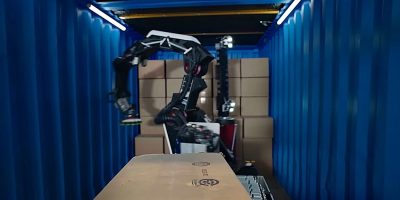
With every major shift in technology, the same question always crops up: how will this development change the job market? Will it add more jobs for people to do, or will it make even more people redundant?
The developing world of IoT is an interesting one for job prospects. There are ways it can harm the career market, and there are ways it can add to it. It can even make existing jobs easier for people without fully replacing them.
How IoT Makes More Jobs

To start, we’ve seen a huge spike in components being made to support the IoT boon. IoT components don’t come out of nowhere – people have to design, manufacture and test them. The components are then sold to companies making IoT products, who also need people to put the components into their product and test them.
This is usually the end of the line for consumer-based IoT gadgets; they can then be sold on the shelves in stores. For business-based IoT, however, companies typically don’t want to buy and install the products themselves, especially on a larger scale. They’d want specialists to handle the process of procuring and installing these devices, which creates jobs for IoT engineers.
How IoT Helps Existing Jobs

One thing IoT does very well is take the monotony out of collecting data. If you want to manually track the water pressure at a specific point in a system, you need to install a pressure tracker and check on it every so often. With IoT, the water pressure can be automatically beamed back to a central hub without the need to send anyone out.
It’s easy to assume that this automatic collation of data will replace jobs, but at the moment, IoT is very bad at actually using that data to produce information. It’s at its best when it’s churning out large amounts of data and uploading it into its software, which can then be analyzed by a human to check for specific trends. As such, the development of IoT means jobs lean away from taking measurements and more towards making sense of the readings coming in and deriving information from it.
Healthcare is a great example of this. IoT is fantastic for measuring a patient’s health, but IoT itself cannot cure patients. It’s up to doctors and nurses to do that, and IoT gives them all the data they need to make a proper diagnosis.
How IoT Takes Jobs Away

The taxi industry isn’t so fond of IoT and neither are other career markets. We’ve seen a race to the finish line to get the first fully-automated car to market. If these companies are successful, the traditional human-driven taxi service will be replaced by a fully automated system which automatically calculates the fastest routes to save the rider money.
The Future of Jobs
IoT could replace humans in some job markets, but it’s not a complete sweep of manual labor. In fact, some career paths are enhanced by the addition of IoT, potentially by a factor larger than the amount of harm it does to the job market.
Which jobs do you see benefiting or losing out to IoT the most? Let us know below.









